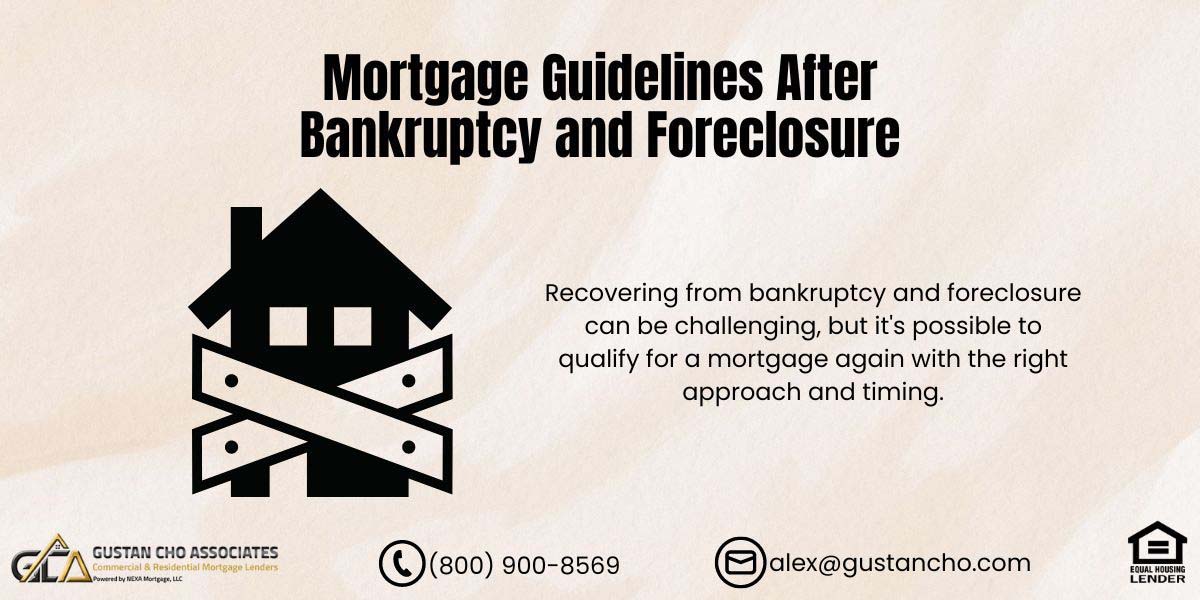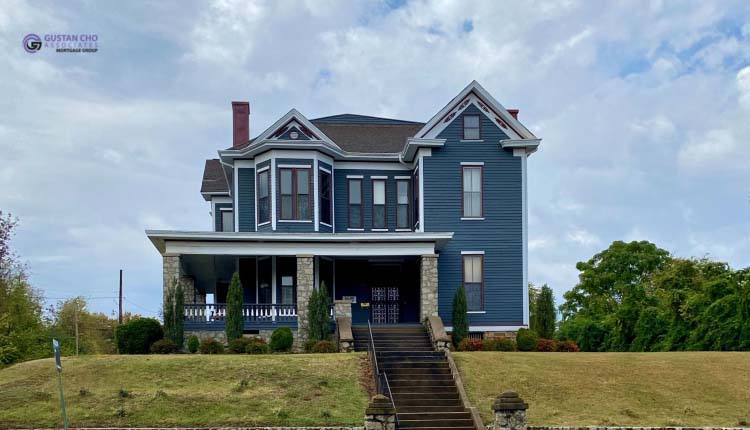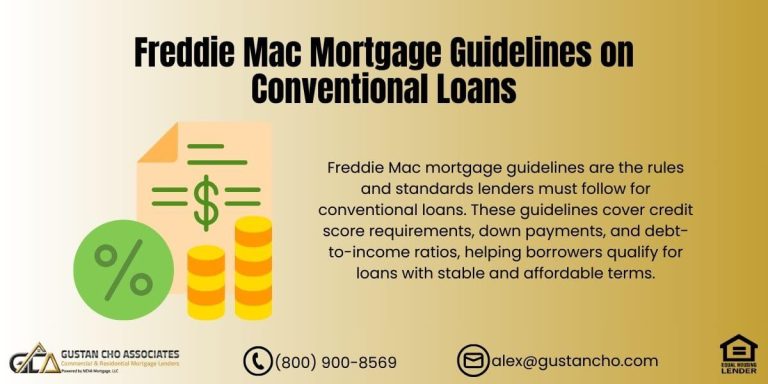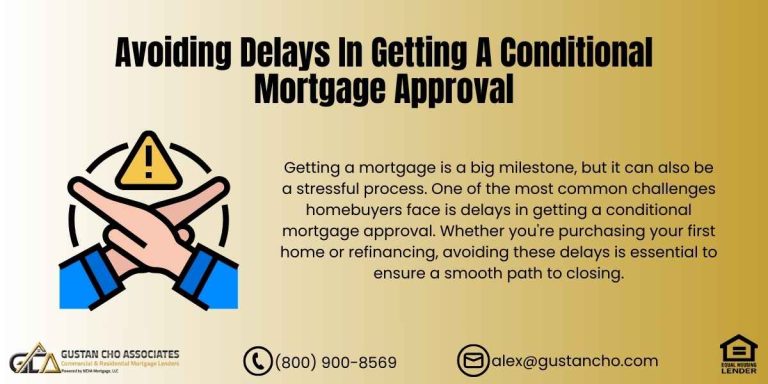Mortgage Guidelines After Bankruptcy and Foreclosure in 2024
If you’ve been through bankruptcy or foreclosure, you might feel like owning a home again is out of reach. The good news? It’s not! It’s possible to secure a mortgage even after experiencing bankruptcy and foreclosure; we’re here to guide you through the process. With the correct information, you’ll be on your way to owning a home in no time.
In this updated guide, we’ll walk you through the mortgage guidelines after bankruptcy and foreclosure in 2024 for government-backed loans like FHA, VA, and USDA, as well as conventional and non-QM loans. We will also discuss strategies for restoring your credit and enhancing your likelihood of being approved for a mortgage. We’ll also discuss alternative loan options like Non-QM loans that might be available much sooner than you think.
Whether you’re recovering from Chapter 7 bankruptcy, Chapter 13 bankruptcy, or a foreclosure, there are loan programs that can work for you. Let’s dive into the details so you can take your first steps toward getting your next home.
What Are the 2024 Mortgage Guidelines After Bankruptcy and Foreclosure?
After experiencing a financial setback like bankruptcy or foreclosure, it’s natural to wonder how soon you can get a mortgage again. Every loan program has different rules when it comes to waiting periods, credit score requirements, and documentation you’ll need to provide. Here’s a breakdown of the guidelines for the most common loan programs:
1. FHA Loans After Bankruptcy and Foreclosure
FHA loans are one of the most flexible mortgage options, especially if your credit has taken a hit. They are government-backed, which means they come with lenient requirements for borrowers who’ve gone through bankruptcy or foreclosure.
- After Chapter 7 Bankruptcy: You’ll have to wait two years following the discharge of your Chapter 7 bankruptcy to be eligible for an FHA loan. However, in some cases, you could be eligible after just one year if you can show you’ve experienced extenuating circumstances (like a major illness or job loss) and have improved your financial habits.
- After Chapter 13 Bankruptcy: FHA loans allow you to qualify after just one year of making on-time payments during your Chapter 13 repayment plan. You don’t need to wait until the bankruptcy is discharged, making this an attractive option if you’re still paying off your debts but want to buy a home. A manual underwrite will likely be required so your loan officer will closely examine your financial situation.
- After Foreclosure: If you’ve gone through a foreclosure, you must wait three years before qualifying for an FHA loan. However, extenuating circumstances could reduce this waiting period, just like with bankruptcy.
Ready to Buy a Home After Bankruptcy and Foreclosure? We Can Help!
Contact us today to explore your mortgage options and see how we can help you get back on track.
2. VA Loans After Bankruptcy and Foreclosure
For active-duty service members or veterans, VA loans are an excellent option. They offer some of the most flexible requirements for borrowers overcoming financial difficulties.
- After Chapter 7 Bankruptcy: You must only wait two years after your bankruptcy discharge to apply for a VA loan.
- After Chapter 13 Bankruptcy: VA loans are similar to FHA loans when it comes to Chapter 13 bankruptcy. You can qualify after just one year of on-time payments during the repayment plan, even if your bankruptcy hasn’t been discharged. A manual underwrite may apply, and you’ll need approval from the bankruptcy trustee.
- After Foreclosure: VA loans require just a two-year waiting period after a foreclosure. This makes them one of the fastest routes to homeownership after a foreclosure event.
3. USDA Loans After Bankruptcy and Foreclosure
USDA loans, accessible to purchasers in specified rural regions, provide full financing with no down payment required. Furthermore, these loans offer greater flexibility for individuals who have faced bankruptcy or foreclosure.
- After Chapter 7 Bankruptcy: The USDA requires a three-year waiting period after the discharge of Chapter 7 bankruptcy.
- After Chapter 13 Bankruptcy: Like FHA and VA loans, USDA loans allow you to qualify after one year of on-time payments during your Chapter 13 bankruptcy repayment plan.
- After Foreclosure: There’s also a three-year waiting period after foreclosure, deed-in-lieu of foreclosure, or a short sale for USDA loans.
4. Conventional Loans After Bankruptcy and Foreclosure
Conventional loans, which the government does not back, typically have stricter requirements than FHA, VA, and USDA loans. However, they’re still an option for many borrowers after bankruptcy or foreclosure, especially if you have re-established good credit.
- After Chapter 7 Bankruptcy: For conventional loans, the waiting period is four years after your Chapter 7 bankruptcy is discharged.
- After Chapter 13 Bankruptcy: You can qualify for a conventional loan two years after the discharge of your Chapter 13 bankruptcy or four years after it’s dismissed (if you didn’t complete the repayment plan).
- After Foreclosure: You’ll need to wait seven years to qualify for a conventional loan after foreclosure. However, the waiting period can be reduced to four years if you’ve gone through a short sale or deed-in-lieu of foreclosure.
5. Non-QM Loans After Bankruptcy and Foreclosure
If waiting several years for a traditional loan feels impossible, Non-QM loans (Non-Qualified Mortgage loans) may be the solution. These loans have flexible requirements and often don’t require any waiting period after bankruptcy or foreclosure. You could be eligible for a Non-QM loan one day after your bankruptcy is discharged or after your foreclosure.
Non-QM loans are a great option for people who may not meet traditional lending guidelines but have strong compensating factors, like high income or significant savings.
What Are the Benefits of Non-QM Loans?
- No Waiting Period: You can qualify for a mortgage after bankruptcy or foreclosure.
- Flexible Credit Requirements: Non-QM loans qualify borrowers with credit scores as low as 500.
- Alternative Income Verification: If you are self-employed or earn an irregular income, Non-QM loans allow you to use bank statements in place of tax returns to prove your income.
- Higher Debt-to-Income (DTI) Ratio: Non-QM loans might enable you to qualify with a DTI ratio of as high as 55%, particularly if you have compensating factors.
Tips for Rebuilding Credit After Bankruptcy and Foreclosure
Rebuilding your credit is key to qualifying for a mortgage after bankruptcy or foreclosure. Here are some practical steps to help you improve your credit score:
- Check Your Credit Report: Monitor your credit by consistently reviewing your credit report. Challenge any mistakes you discover, as inaccuracies can negatively impact your score.
- Pay Bills on Time: Your payment record influences your credit score. To avoid missing a bill, consider setting up automatic payments or creating reminders. This proactive strategy can greatly improve your creditworthiness over time.
- Use a Secured Credit Card: One valuable tool for rebuilding your credit score is a secured credit card. You should consider using it for small purchases while ensuring that you pay off the balance in full each month. This practice not only demonstrates responsible credit use but also contributes positively to your credit history.
- Keep Credit Utilization Low: To maintain a positive credit score, keep your credit card balances under 30% of your total credit limit. This approach greatly enhances your credit utilization ratio, which is crucial in influencing your credit score.
- Limit New Credit Applications: Submitting applications for multiple new credit accounts simultaneously can negatively impact your score. Be careful and choose wisely when seeking new credit as you work on improving your financial well-being.
Think You Can’t Get a Mortgage After Bankruptcy or Foreclosure? Think Again!
Contact us today to discuss your options and find out how we can help you qualify for a mortgage.
Conclusion: Your Path to Homeownership in 2024
Bankruptcy and foreclosure might seem like the end of the road for homeownership, but it’s just a detour. You can still qualify for a mortgage with the right information and some time to rebuild your credit. Whether you choose an FHA, VA, USDA, conventional, or Non-QM loan, the path to owning a home again is within reach.
If you’re ready to start your journey toward homeownership after bankruptcy or foreclosure, contact one of our mortgage specialists today at 800-900-8569 or alex@gustancho.com. We’re here to help guide you every step of the way and make sure you find the best loan for your situation.
Homeownership after a financial setback is possible. You’ve got this! Let’s get you back on track with a mortgage that works for you in 2024.
Frequently Asked Questions About Mortgage Guidelines After Bankruptcy and Foreclosure:
Q: How Long do I Have to Wait to Get a Mortgage After Bankruptcy?
A: According to the mortgage guidelines after bankruptcy and foreclosure, the waiting period depends on the type of bankruptcy and the loan program. For FHA and VA loans, it can be as short as 1-2 years, while conventional loans may require 4 years.
Q: Can I Get a Mortgage After Foreclosure?
A: Yes, the mortgage guidelines after bankruptcy and foreclosure allow you to get a mortgage after foreclosure. The waiting period is typically 2-3 years for government-backed loans like FHA and VA but longer for conventional loans.
Q: What are Non-QM Loans, and Can I Get One After Bankruptcy or Foreclosure?
A: Non-QM loans are flexible mortgage options for borrowers who may not meet traditional requirements. According to the mortgage guidelines after bankruptcy and foreclosure, you may qualify for a Non-QM loan soon after bankruptcy or foreclosure, even without a waiting period.
Q: Do I Need Perfect Credit to Get a Mortgage After Bankruptcy or Foreclosure?
A: No, the mortgage guidelines after bankruptcy and foreclosure allow for lower credit scores, especially with FHA and VA loans, where scores as low as 500 might qualify you for a mortgage.
Q: What is the Shortest Time to Get a Mortgage After Chapter 13 Bankruptcy?
A: According to the mortgage guidelines after bankruptcy and foreclosure, you can qualify for an FHA or VA loan after just 1 year of on-time Chapter 13 bankruptcy payments, even before the bankruptcy is fully discharged.
Q: Can I Get a Mortgage if I’ve had Both Bankruptcy and Foreclosure?
A: It is still possible to obtain a mortgage even if you have gone through bankruptcy and foreclosure. The mortgage guidelines after bankruptcy and foreclosure differ depending on the loan program. Still, options like FHA, VA, and non-QM loans provide flexibility for borrowers facing these circumstances.
Q: What are the Credit Score Requirements for a Mortgage After Bankruptcy or Foreclosure?
A: The mortgage guidelines after bankruptcy and foreclosure for FHA and VA loans usually require a minimum credit score ranging from 500 to 580. The credit score requirements are generally higher for conventional loans, typically beginning at 620.
Q: Can I Qualify for a VA Loan After Foreclosure?
A: Yes, the mortgage guidelines after bankruptcy and foreclosure state that VA loans have a 2-year waiting period after a foreclosure, making it one of the faster options for getting a mortgage after a financial setback.
Q: How do I Improve My Mortgage Chances After Bankruptcy or Foreclosure?
A: To follow the mortgage guidelines after bankruptcy and foreclosure, focus on rebuilding your credit by paying bills on time, keeping credit utilization low, and limiting new credit applications.
Q: Can I Get a USDA Loan After Bankruptcy or Foreclosure?
A: Yes, the mortgage guidelines after bankruptcy and foreclosure allow for USDA loans with a 3-year waiting period after Chapter 7 bankruptcy or foreclosure and after 1 year of on-time payments in a Chapter 13 plan.
This blog about “Mortgage Guidelines After Bankruptcy and Foreclosure” was updated on October 17th, 2024.
Looking to Buy a Home After Bankruptcy and Foreclosure? Let’s Get You Approved!
Contact us now to explore your options and get pre-approved for your home loan.










